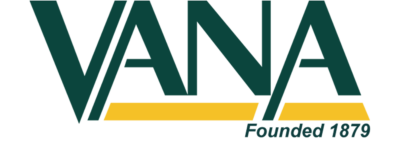OFFICIAL: CROSS-BORDER TRAVEL RULES
Dear Members,
As discussed, the outbreak in New South Wales highlights the importance of Victoria’s Travel Permit System.
All of New South Wales and the Australian Capital Territory has been declared a red zone under the Victorian Border Crossing Permit Directions at 11:59 pm Sunday 11 July 2021.
This means the Victorian border is effectively closed to New South Wales and the ACT – except for:
- Victorian residents returning on a red zone permit
- residents of cross border communities to travel within the cross-border area, as long as they have not travelled into a red zone beyond this area
- people with other valid permits (such as specified workers)
- and for people with exemptions or exceptions.
If you’re a Victorian resident: You can obtain a red zone permit to return to Victoria if you have not visited a very high-risk exposure site during the relevant periods AND are not currently diagnosed with COVID-19, identified as a close contact of a confirmed case of COVID-19, or are required to self-isolate or self-quarantine (or equivalent) in any State, Territory or Green Zone Country.
On arrival you must:
- Travel directly to the premises at which you will self-quarantine for 14 days (from the date of entry into Victoria), and only leave the premises in very limited circumstances (to obtain medical care, get tested for COVID-19, in an emergency, when required by law, or to leave Victoria).
- Get tested for COVID-19 within 72 hours of entering Victoria and again on around day 13 of self-quarantine.
- Minimise contact with other persons in Victoria (except in an emergency).
- Practise physical distancing.
- Wear a face covering in all public places (unless an exception from the requirement to wear a face-covering applies).
- Advise the Department immediately if you experience COVID-19 symptoms.
Apply for a Travel Permit at the Service Victoria website.
If you aren’t a Victorian resident: You cannot enter Victoria from a red zone without an exception, exemption or other valid permit.
If you live in the NSW cross-border area: Whilst most people will need to apply for a permit to enter Victoria from interstate, those living in local government areas along the Victoria/NSW border will not need a permit but will instead be able to use their driver’s licence (or other forms of proof that you are a cross border community member, such as photo ID and evidence of your current address) as a passport to travel within the NSW/VIC border region, and into Victoria.
You cannot enter Victoria if you have been to a red zone outside of the cross-border community area, or if you have COVID-19, any symptoms, or have been defined as a close contact by a state health authority.
A strong police and Authorised Officer presence will continue at Victoria’s land borders and airports. Substantial fines have already been handed down to individuals arriving without a valid permit since current red zones have come into effect.
Specified worker permits
Workers who need to travel to Victoria from a Red Zone or Orange Zone for work, or to return to Victoria having worked in a Red Zone or Orange Zone, may enter Victoria if they have a permit.
Workers who perform all their work exclusively outdoors are eligible for a Specified Worker (Exclusive Outdoors Activities) Permit. Workers who undertake these activities and perform any of their work indoors are eligible for a Specified Worker (Other) Permit.
Eligible activities include:
- Forestry activity
- Farming activities and other operations relating to agriculture including horticulture, viticulture, irrigation, permaculture, apiculture – including moving beehives, grains, fibre production, dairy, flower industry, commercial fishing, aquaculture, livestock and forestry. This includes farm equipment, tools and their maintenance
- Intensive agricultural production including greenhouses and animal production
- Food and fibre manufacturing: manufacturing of beverages, baked goods, dairy goods, canned or frozen goods, other packaged products, blankets, clothing, building materials, packaging
- Food and fibre processing: abattoirs, seafood, dairies, timber mills, sugar mills, cotton gins
- Agricultural, veterinary chemicals and vaccine production, transport and distribution
- Businesses that support agriculture and farming including but not limited to on‐farm consultants, livestock agents, agronomists, shearing contractors, trades services and contracting businesses
- Laboratory and diagnostic services
- Animal saleyards, knackeries and animal transport services (including livestock and pets)
- Animal feed production, transport, packaging, sale, and feeding (including livestock and pets)
- Veterinary clinics and related services including on‐farm visits, animal care services (only where it there is a genuine animal welfare issue) and artificial insemination
- Teaching and scientific facilities which require the keeping or use of animals
- Any business that is involved in providing support services to agriculture, forestry and fishing activities under the Agricultural Code, such as food safety and verification, inspection or associated laboratory services; market access, biosecurity and animal welfare, national disaster response recovery and relief functions
- Water supply, water managers and water transport supporting agricultural production
- Export supply chain operators
- Food and beverage production manufacturing including associated services and goods necessary for the packaging of these products
- Essential service worker that includes transport, fuel, light, power, water and sewerage
- A resources sector specialist worker, whose skills cannot be readily sourced in Victoria but are required for reasons such as worker safety, essential maintenance, to keep sites operational or to maintain critical industries
- Specialised clinical waste workers required for the operation of primary clinical waste incinerators in Victoria.
Commercial freight workers are eligible for a Specified Worker (Low Workplace Interaction) Permit that allows for multiple entries over 14 days. A Commercial freight worker means a person who is subject to the Freight Code and includes a heavy vehicle driver, rail crew or a support worker.
Apply for Specified Worker Permits at the Service Victoria website.
Reasons for an exemption may include:
- to attend a funeral
- to attend an end of life event
- if a person owns or has responsibilities in relation to an animal, to meet obligations to sustain the life and wellbeing of that animal
- to return to the person’s ordinary place of residence for health, wellbeing, care or compassionate reasons or
- to effect an emergency relocation.
Exceptions exist on various limited grounds, including for people who need to enter Victoria to provide, receive or accompany a dependant who is to receive emergency or essential medical care or other urgent care.
Help prevent the spread of COVID-19
Due to the COVID-19 outbreak in New South Wales, businesses are urged to check they are doing everything possible to be COVIDSafe.
- Check-in everywhere, every time – All businesses and workplaces are required to use the Victorian Government QR Code Service unless an exemption applies.
- Get tested if you are ill – Anyone who thinks they may have COVID-19 should call the dedicated 24/7 hotline on 1800 675398.
- Support your workers to get vaccinated – Appointments can be booked here.
- Update your COVIDSafe Plan – Every business with on-site operations must have a COVIDSafe Plan.
Please click here to see a creative stakeholder pack regarding red zones for NSW and ACT.
Thank you for helping to stop the spread of COVID-19. For more information go to coronavirus.vic.gov.au or call the Business Victoria hotline on 13 22 15.
Yours sincerely,
Brendan Tohill | Chief Executive Officer
VANA – Victorian Authorised Newsagents Association
NLNA – National Lotteries Newsagents Association


